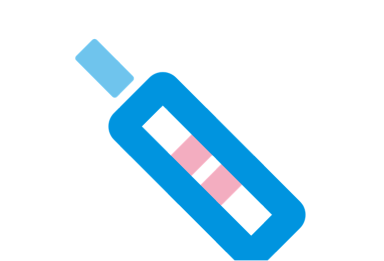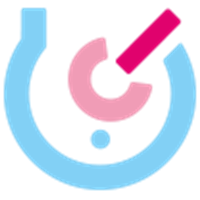Pregnancy testing

Pregnancy is the term used to describe the period in which a fetus develops inside a woman’s womb or uterus.
Pregnancy usually lasts about 40 weeks, or just over 9 months, as measured from the last menstrual period to delivery. Health care providers refer to three segments of pregnancy, called trimesters.
Early signs of pregnancy
The most obvious sign of pregnancy is a missed period.
But even before your period is due, it’s possible that you might notice some pregnancy symptoms. One of the earliest signs is a tingling or prickling sensation in your breasts, particularly around your nipples. Some women get this feeling when they have been pregnant for just one week.
Other signs and symptoms of pregnancy to watch out for include:
Changes to the way your breasts look feel
In the early weeks of pregnancy you may notice that your breasts look bigger. They might feel lumpy and tender to touch too. Your nipples can look more prominent and the ring of skin around your nipples, called the areola, might look plumper and darker. Veins in your breasts may start to look more prominent and noticeable as well.
Nausea and Vomiting
You probably know this as morning sickness, but it can happen at any time of day. Nausea can start just a few weeks into your pregnancy and can last for several months.
Needing to wee more often
This usually starts about a month after you became pregnant. Changes to your hormones are the cause. Although you might be urinating more often, you shouldn’t have any pain or a burning feeling. If you do, get it checked out. You may have an infection called cystitis.
Spotting and cramping
Even if you’re pregnant, you may still have some very light vaginal bleeding and cramps that feel like period pain. It tends to happen a couple of weeks after your period was due. If you’re excited about being pregnant, it can be a worrying time. The bleeding should stop on its own, but if it gets heavier, contact your MSIA provider for advice.
Feeling tired
Pregnancy can be exhausting, especially in the first few months. You might find yourself struggling to stay awake, even in the middle of the day.
Home pregnancy test
Pregnancy tests use your wee to find out if you’re pregnant or not. They look for a hormone in your wee that you’ll only have if you’re pregnant.
You might need to wee into a cup, and then dip the test stick in to your wee. Or you may have to move a small amount of wee using a dropper into a pregnancy test container.
Pregnancy tests usually take a few minutes to work. Waiting for the result to appear can be nerve wracking, whatever result you’re hoping for.
Pregnancy tests are reliable. If you see a positive result you can feel assured that this is accurate.
If it’s negative, but you’re still sure you feel pregnant, wait a few days then take another test. The levels of the pregnancy hormone the test will look for in your wee will get higher each day so you may get a positive result next time.
When to take pregnancy test?
You can take a pregnancy test from the day your period is due. Most pregnancy tests are sensitive enough to detect the pregnancy hormone in your wee at this stage.
Although you may be anxious to find out if you’re pregnant, testing too early may not give you a reliable result. You may need to test again if your first test is negative but your period still doesn’t arrive.







